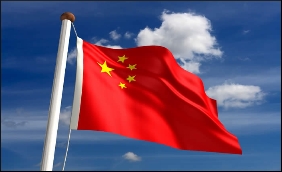|

|
China's 30 years of reform and opening up
|
|

|
|
| Top Stories |
 |
|
|
|
Wu Qi | 10 Oct, 2008
This autumn was a season of revelry and national pride for the Chinese. Still basking in the glory of spectacular summer Olympics in August, the whole nation had something else to celebrate as its astronaut became the first Chinese to perform a space walk.
Zhai Zhigang Sep 27 emerged from the Shenzhou-7 spacecraft and walked the space for about 20 minutes, seen by the whole nation in a live telecast.
The Shenzhou-7 story is but one in China's extraordinary transformation from a semi-closed, highly centralised society to one gradually opening up to the world.
The journey of reform and opening-up in the late 1970s was initiated by late leader, Deng Xiaoping as well as other senior leaders who gathered for the Third Plenum of the 11th Central Committee of the Communist Party of China in 1978.
In December 1978, 18 farmers in Xiaogang village, east China's Anhui province, signed a secret agreement to divide community-owned farmland into pieces for household contract.
The move was supported by Deng. It was also recognized by the government, which then initiated the system of contracted responsibilities based on the household in rural areas.
On July 15, 1979, the Chinese Communist Parly and the State Council changed policies regarding foreign economic activities to make them more flexible. Special economic zones were also set up in the cities of Shenzhen, Zhuhai, Shantou and Xiamen.
The construction and development of special economic zones and opening-up zones prompted the creation of a group of regional economic growth centres.
During his tour to south China in 1992, when the country's reform and opening-up drive came to a crucial juncture, Deng set about defining socialism as the pursuit of common prosperity. He delivered a series of speeches to define socialism and how to build it. Some people still thought the zones were a road to capitalism.
"Practice of a planned economy is not equivalent to socialism because there is also planning under capitalism. Practice of a market economy is not equivalent to capitalism because there are also markets under socialism," said Deng in one of his most repeated quotes.
Experts believe Deng's simple but penetrating paradox paved the way for China's switch from a planned economy to a market economy.
That economy has grown rapidly as a result of foreign trade. In 1996, China's total foreign trade volume accounted for 35.5 percent of its GDP. Now, it accounts for nearly 70 percent of the GDP.
Twenty-three years after the launch of the opening-up policy and 52 years after the founding of the communist rule, China entered the World Trade Organization (WTO) in 2001 to become its 143rd member.
"Thirty years of reform and opening up have brought about historic changes in China's development -- the planned economic system has been smashed gradually and a market economic system has basically shaped up, creating a rocketing economy that is now the fourth largest in the world," said Chi Fulin, executive president of the China Institute for Reform and Development.
From 1978 to 2007, China's gross domestic product (GDP) had grown by 9.6 percent annually from $216.5 billion to $3.6 trillion dollars. Fiscal revenue had also grown over 44-fold from 113.2 billion yuan to 5130 billion yuan.
The World Bank hailed China's reform and opening-up drive as the largest poverty reduction campaign ever launched in world history. China was particularly recognized for reducing the number of rural people in abject poverty.
Statistics show that in 1978, when the reform and opening-up started, China had 250 million extremely poor people in its countryside, or 31 percent of its rural population. The figure declined to 15 million, or 1.6 percent, by the end of 2007.
China now contributes to more than 10 percent of global economic growth and more than 12 percent of global trade expansion.
Its average annual import volume is close to $560 billion, generating some 10 million jobs for its trade partners.
"The past 30 years of reform and opening-up have told us that China cannot develop itself in isolation from the world. And it is equally true that the world cannot enjoy prosperity or stability without China," President Hu Jintao said.
|
|
|
| |
|
|
|
|
|
|
|
|
|
|
|
|
|
|
| |
| Customs Exchange Rates |
| Currency |
Import |
Export |
US Dollar
|
84.35
|
82.60 |
UK Pound
|
106.35
|
102.90 |
Euro
|
92.50
|
89.35 |
| Japanese
Yen |
55.05 |
53.40 |
| As on 12 Oct, 2024 |
|
|
| Daily Poll |
 |
 |
| Do you think Indian businesses will be negatively affected by Trump's America First Policy? |
|
|
|
|
|
| Commented Stories |
 |
|
|
|
|
|
| |
|